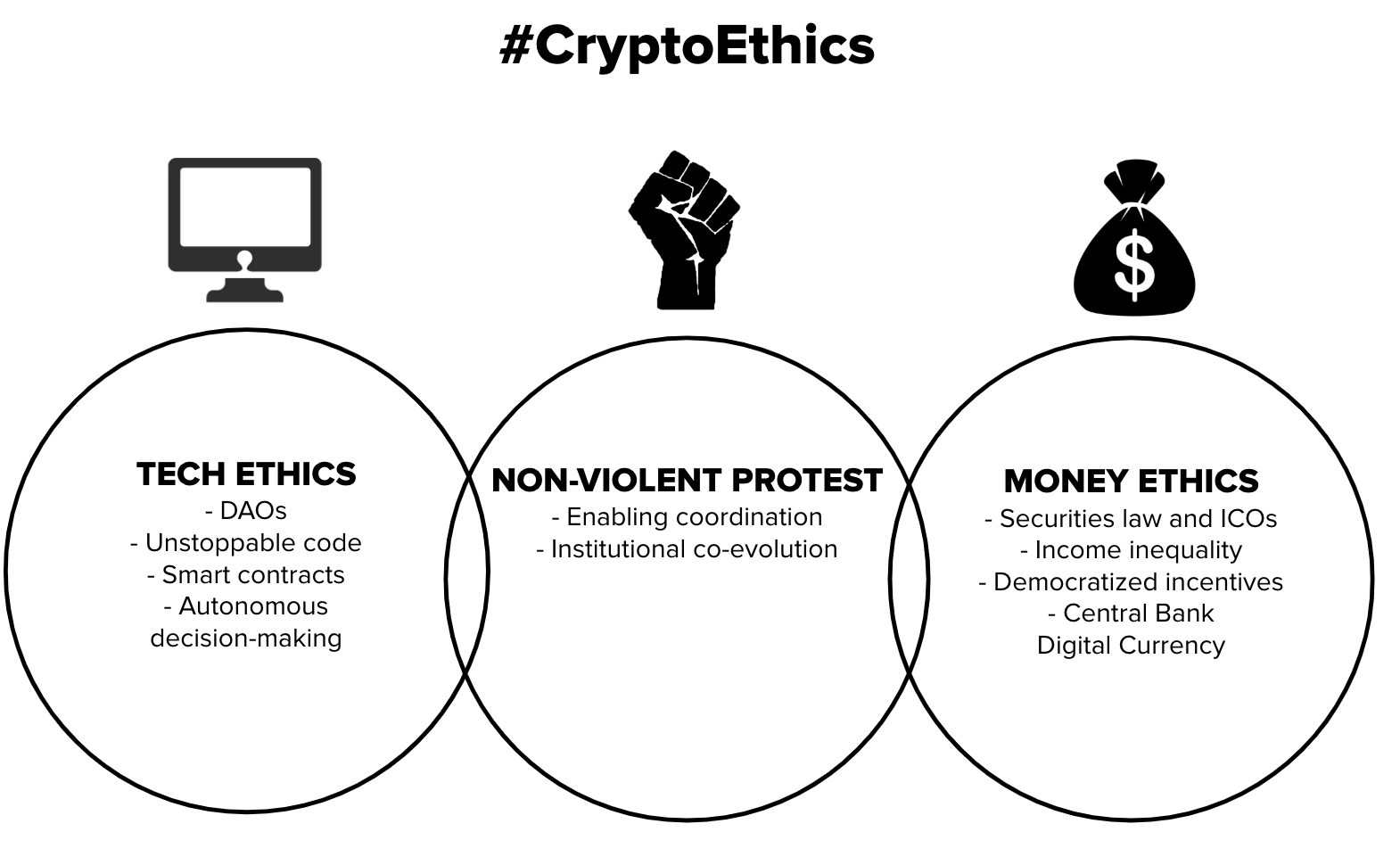The ethical implications of cryptocurrency include issues around legality, environmental impact, and use in illicit activities. It raises questions on equity, accessibility, and influence on global financial systems.
Cryptocurrencies, since their inception, have sparked a revolution in digital finance, challenging traditional economic and social structures. By offering anonymity and decentralization, they’ve become a cornerstone of modern financial discussion, requiring a nuanced understanding of their implications. The ethical landscape of cryptocurrency entails navigating its potential to destabilize economies, evade taxes, or finance illegal activities.
Conversely, its capacity to empower unbanked populations, protect privacy, and promote financial freedom cannot be ignored. Analysts and users alike must strike a balance, promoting responsible use while acknowledging the transformative potential of these digital assets. The ongoing dialogue about the ethics of cryptocurrency shapes regulatory responses and public perception, with the stakes for economic inclusion and security higher than ever.

The Rise Of Cryptocurrency
The rise of cryptocurrency marks a significant shift in how we think about money. Digital currencies are replacing old ways of paying and investing. Bitcoin and Ethereum are popular examples people know. These digital assets work on blockchain technology. This tech keeps a secure record of all transactions.
Cryptocurrencies offer many benefits over traditional money. They allow fast, global, and direct transfers between people. No banks are needed. This new system raises important questions about right and wrong. We need to think about who can use these and if they are always good.
Ethical Implications In Focus
The ethical implications of cryptocurrency raise heated debates. Transparency issues, environmental concerns, and regulation difficulties stand at the core. Users value anonymity, but this can lead to illegal activities.
On the other hand, the decentralized nature of digital currencies promotes financial freedom. This factor is crucial in areas where people lack access to traditional banks. Yet, the energy consumption required to sustain cryptocurrencies, like Bitcoin, is enormous.
Furthermore, mining cryptocurrencies can lead to massive electrical use. This use often relies on non-renewable energy sources. The ethical stance on this is widely contested. Some people see the potential for positive change, while others worry about long-term environmental damage.
Decentralization And Power Dynamics
Decentralization in cryptocurrency shifts control from banks to the people. This means no single group holds all the power. Instead, many people share it. Some people get to save money without using a bank.
This changes how money moves around the world. Now, with digital coins, anyone can send money far away fast. It can be cheaper to move money this way. This is very helpful for people in poor places.
But not all is simple and good. Rich countries might get richer, and poor ones might not catch up. Why? Because not everyone knows how to use this tech.
The table below shows how cryptocurrency affects money:
| Aspect | Impact |
|---|---|
| Banking Fees | Less or none at all |
| Control Over Money | More people have it |
| Global Equality | It could get better or worse |
Transparency Versus Anonymity
Blockchain technology offers a unique blend of transparency and anonymity. The public nature of blockchain records all transactions openly. Yet, users’ identities remain hidden behind complex codes. Privacy matters thus become a hot topic. Individuals rejoice over securing their personal data. Societies debate on ethical fronts, seeking balance. The cryptocurrency space is torn between those who demand full disclosure and those seeking shadow.
Ethical boundaries in the digital realm are challenging. People want to keep their financial actions private. They fear their information might fall into the wrong hands. Stakeholders are called upon to find middle ground. They must respect personal privacy while maintaining transparency. This is vital for cryptocurrencies to gain trust globally.
- Blockchain = Open Transactions + Hidden Identities
- Individuals favor data protection
- Societies seek a balance of ethics
- Full disclosure versus privacy protection is debated
- Trust in crypto requires balancing these elements
Environmental Concerns
The mining of cryptocurrencies like Bitcoin demands massive amounts of electricity. This power usage causes big environmental issues. To picture this, Bitcoin mining uses more energy than some countries. Many miners rely on fossil fuels, which add to carbon emissions.
Finding greener alternatives is key to reducing this footprint. The community is turning to renewable energy sources. For example, solar, wind, and hydroelectric power offer cleaner ways to mine. Innovations in technology aim to cut energy use without slowing down growth. Eco-friendly mining could lead to a sustainable crypto future.
Regulatory Challenges
Understanding the need for government oversight in cryptocurrency is crucial. Governments around the world face complex challenges as they try to regulate digital currencies. It’s important to ensure that laws protect investors, prevent fraud, and support innovation. Crafting regulations that achieve these goals without stifling the growth of cryptocurrencies requires a careful approach.
Effective regulation can add legitimacy to cryptocurrencies. It can also increase public trust in these new forms of money. The key is to find a balance that allows for the safe and stable growth of the cryptocurrency market. Ensuring transparency and accountability in operations is equally important. This can help to prevent illegal activities such as money laundering and financial terrorism.
Fairness In Accessibility
Cryptocurrency is reshaping the financial landscape, offering a new way to transact. Accessible to anyone with internet, it creates unique opportunities. Still, digital divides persist, affecting who can take part. We must address these divides.
Equal opportunity in the digital currency space is crucial. It’s not just about access to technology. Knowledge on how to use cryptocurrencies is equally important. Education and resources should reach everyone. This ensures fair chances for all to benefit from this innovation.
Addressing socioeconomic divides means creating an inclusive environment. Efforts to simplify the use of digital wallets and exchanges are key. User-friendly platforms can bridge the gap for those less tech-savvy. By doing so, the promise of decentralization becomes more than a concept; it turns into a practical reality for all.
The Future Of Ethical Cryptocurrency
The cryptocurrency world is vast and complex. Emerging technologies are shaping a new ethical framework. Blockchain advancements enforce transparency and security.
Smart contracts enable trustless agreements. These self-executing contracts are game changers. They ensure that rules are followed. This diminishes corruption risks.
The digitization of assets leads to a responsible digital economy. With decentralized finance (DeFi), power returns to the people. Financial inclusion grows. More people safely access money services.
- Environmental consciousness is now vital in crypto. Mining practices are shifting towards sustainable methods.
- Charitable giving is revolutionized through digital currencies. Transparent donations become possible.
Stakeholders consider the social impact of their investments. This nurtures a culture of ethical responsibility. The currency of the future hinges on these evolving principles.

Frequently Asked Questions Of What Are The Ethical Implications Of Cryptocurrency
How Does Cryptocurrency Affect Ethical Decision-making?
Cryptocurrency raises complex ethical considerations by offering user anonymity. This often leads to moral dilemmas around illicit transactions and tax evasion. Ethical decision-making must balance privacy rights with societal norms and legal obligations.
What Are Ethical Concerns With Crypto Transparency?
Crypto transactions are pseudonymous, not fully anonymous, stirring debates on transparency versus privacy. Ethical questions focus on user traceability and the potential for misuse without infringing on individual freedoms.
Can Cryptocurrency Promote Unethical Financial Practices?
Cryptocurrency can be misused for money laundering, fraud, and evading sanctions. Its decentralized nature makes it challenging to regulate and enforce ethical financial practices compared to traditional banking.
How Does Crypto Influence Data Privacy Ethics?
Cryptocurrency transactions store data on a public ledger, creating tension between blockchain transparency and user privacy. Ethical considerations include the extent of data shared and rights to financial privacy.
Conclusion
Cryptocurrency stands at a complex ethical crossroads. Its innovation brings potential for financial freedom alongside challenges in regulation and equity. As we grapple with its implications, transparency and informed consent become pivotal. Ethical use of this technology can only flourish with concerted efforts toward education and integrity.
Let’s embrace the future of finance with responsibility at its core.

